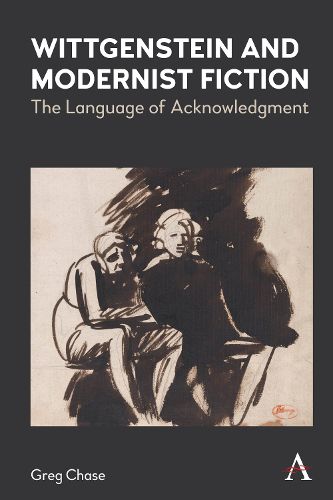Readings Newsletter
Become a Readings Member to make your shopping experience even easier.
Sign in or sign up for free!
You’re not far away from qualifying for FREE standard shipping within Australia
You’ve qualified for FREE standard shipping within Australia
The cart is loading…






The early decades of the twentieth century were a period of major economic and cultural upheaval across Europe and America. Scholars have typically held that novelists responded to these shifts by questioning language’s capacity to picture the world accurately. But, even as modernist novels move away from a view of language as a means of gaining knowledge, they also underscore its capacity to grant acknowledgment; they treat words as tools for recognizing and responding to the inner lives of others. This book brings out this crucial feature of modernism by engaging with the philosophy of Ludwig Wittgenstein and with Stanley Cavell’s pioneering interpretation of Wittgenstein’s thought. The book shows how Wittgenstein’s interest in acknowledgment emerges over the course of his career-long effort to grapple with the same disorienting conditions of modern life that the experimental fiction of this period registers, including world wars, industrialization, and new conceptions of sexuality. It, then, argues that modernist novels by E.M. Forster, Virginia Woolf, Nella Larsen, William Faulkner, and others exhibit a similar interest in language’s capacity to grant acknowledgment. These novels offer readers a way of hearing what Wittgenstein calls the silent soliloquy of others, giving us words by which we might acknowledge the otherwise unvoiced inner lives of socially marginalized figures.
$9.00 standard shipping within Australia
FREE standard shipping within Australia for orders over $100.00
Express & International shipping calculated at checkout
The early decades of the twentieth century were a period of major economic and cultural upheaval across Europe and America. Scholars have typically held that novelists responded to these shifts by questioning language’s capacity to picture the world accurately. But, even as modernist novels move away from a view of language as a means of gaining knowledge, they also underscore its capacity to grant acknowledgment; they treat words as tools for recognizing and responding to the inner lives of others. This book brings out this crucial feature of modernism by engaging with the philosophy of Ludwig Wittgenstein and with Stanley Cavell’s pioneering interpretation of Wittgenstein’s thought. The book shows how Wittgenstein’s interest in acknowledgment emerges over the course of his career-long effort to grapple with the same disorienting conditions of modern life that the experimental fiction of this period registers, including world wars, industrialization, and new conceptions of sexuality. It, then, argues that modernist novels by E.M. Forster, Virginia Woolf, Nella Larsen, William Faulkner, and others exhibit a similar interest in language’s capacity to grant acknowledgment. These novels offer readers a way of hearing what Wittgenstein calls the silent soliloquy of others, giving us words by which we might acknowledge the otherwise unvoiced inner lives of socially marginalized figures.